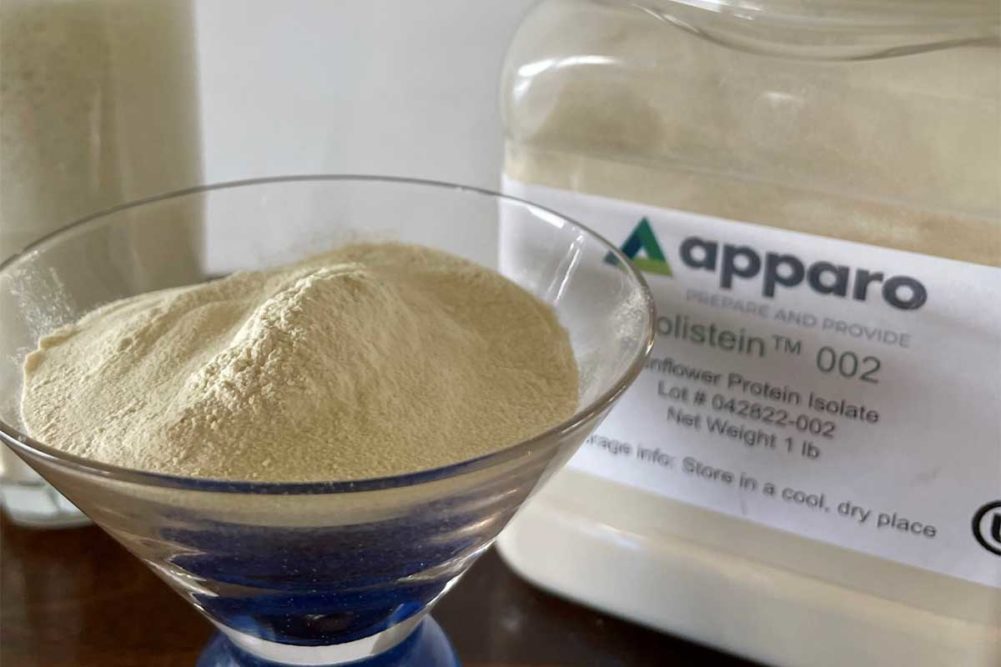EDEN PRAIRIE, MINN. — Plant protein company Apparo earned the Upcycled Certified classification from the Upcycled Food Association for its Solistein sunflower protein isolates.
The isolates are produced using seed meal, a byproduct of sunflower oil production that would otherwise go to waste. Through this patent-pending Total Crop Utilization program, Apparo aims to increase human nutritional use of this seed meal from near zero percent to more than 80%.
The isolates are also non-GMO Project Verified, gluten-free, soy-free and vegan, meeting growing demand in the plant-based foods market, the company said.
“We’re proud to be part of the upcycling and non-GMO communities and look forward to serving the needs of food and supplement developers looking for upcycled certified and non-GMO sunflower proteins,” said Ian Mackay, chief executive officer of Apparo. “Both of our Solistein proteins are over 90 percent protein. The Solistein 001 has a sweet taste, and Solistein 002 has a neutral flavor. These options are true game changers that we believe will take plant-based products to the next level in terms of flavor opportunities.”
More than 30% of all globally produced food is lost or wasted, according to the Upcycled Food Association. The organization awards its Upcycled Certified classification to products and ingredients made with surplus food or food manufacturing by-products, that have verifiable supply chains and positively impact the environment.
“We are diverting crop resources from animal feed to human food, thereby sustainably redirecting existing nutritional resources for human use,” Mr. Mackay said. “We chose to work with sunflower seeds because they are a major global crop and a resource that can be scaled much more rapidly than many other protein sources in development. This will therefore have a more rapid and impactful sustainability effect with regards to scale and speed-to-market.”
Mr. Mackay said the company will continue to apply its upcycled mission to other potential ingredient applications going forward.
“In the short term, there are many opportunities to sustainably harvest more nutrition from existing feedstocks that are currently underutilized,” he said.






